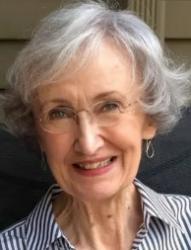
1802 - 1884 Person Name: James George Deck (1802-1884) Meter: 6.6.6.6.8.8 Author of "Father, to Seek Thy Face" in The Christian Hymnary. Bks. 1-4 Deck, James George, eldest son of John Deck, of Bury St. Edmunds, was born in 1802 and educated for the army, and became an officer in the Indian service. Retiring from the army, and having joined the Plymouth Brethren, he undertook, in 1843, the charge of a congregation of that body, at Wellington, Somerset. In 1852 be went abroad and settled in New Zealand. His hymns were published in Hymns for the Poor of the Flock, 1837-1838; Psalms and Hymns, &c, London, Walther (containing those in the former collection), 1842; the Wellington Hymn Book, 1857; Hymns and Spiritual Songs, 1860. Of his hymns now in use outside his own denomination, the greater part appeared in the 1837-1838 book, and are found in his brother-in-law's (Dr. Walker's) Cheltenham Psalms & Hymns, 1855. His compositions are marked by directness of aim, simplicity of language, and great earnestness. The rhythm is good, and an expressive tenderness pervades many of them. Although dealing mainly with the "Second Advent," there are several on other subjects which are of more than average merit. In a collected form they were published in his Hymns and Sacred Poems, Melbourne, H. Seelenmeyer, 1876. The more important of his hymns are annotated under their respective first lines. Of the rest we have:—
i. From Hymns for the Poor of the Flock, 1838.
1. Behold yon bright and countless throng. All Saints. Repeated in Maurice's Choral Hymnbook, 1861.
2. How long, O Lord our Saviour. Second Advent desired. In the Parish Hymnbook., 1803 and 1875, this is altered to "How long, O Lord, Beloved."
3. Jesus, spotless Lamb of God. Good Friday.
4. Lord Jesus, are we [we are] one with Thee? One with Christ. In Walker's Psalms and Hymns, 1855-1880, and several American hymn-books.
5. Lord, we are Thine, our God Thou art. One with Christ. Originally in 4 st. of 8 1., it appeared, in a re-written form in 3 st. in Walker's Psalms and Hymns, 1855, as " Lord, we are Thine, in Thee we live."
6. 0 happy day when first we felt. The Day of Peace.
7. 0 Jesus Christ, the Saviour. Jesus All in All. In Walker's Psalms and Hymns, it begins: "0 Jesus Christ, our Saviour."
8. 0 Jesus, gracious Saviour." The Advocate.
9. 0 Lord, when we the path retrace. Christ our Example.
10. 0 Lord, who now art seated. Christ in glory.
11. Saviour, haste; our souls are waiting. Second Advent desired. This is given in Walker's Psalms and Hymns, in a rewritten form as "Saviour, hasten Thine appearing."
12. Soon shall our Master come. Waiting for Christ.
13. There is a place of endless joy. Heaven.
14. We're not of the world that fadeth away. Christ's Sheep.
15. When along life's thorny road. Passiontide.
ii. From Appendix, to the 1841 edition of the Hymns for the Poor of the Flock.
16. Lamb of God, our souls adore Thee. Praise to Christ. Sometimes it begins with st. ii.," Lamb of God, Thy Father's bosom."
17. Lamb of God, Thou now art seated. 2nd Part. of No. 10.
iii. From Psalms and Hymns, in Two Parts, Lond., D. Waither, 1842.
18. Again we meet in Jesus' name. Divine Worship.
19. Great Captain of Salvation. Burial. In the Irish Church Hymnal, and other collections.
20. Jesus, Thy name indeed is sweet. Hope of the Resurrection.
21. O blessed Jesus, Lamb of God. Praise to Jesus.
22. 0 Lamb of God, still keep me [us]. Christ's Presence desired. This hymn is somewhat popular in America.
23. 0 Lord, in nothing would I boast. Christ All in All.
24. Oft we, alas! forget the love. Holy Communion.
25. The veil is rent! lo, Jesus stands [our souls draw near]. The Intercessor.
26. We bless our Saviour's name. Thanksgiving for Forgiveness.
iv. From Psalms and Hymns for Public and Social Worship (Dr. Walker's Collection), 1855.
27. Father, to seek Thy face. Public Worship.
28. Jesus, [I] we rest in [on] Thee. Joy in Forgiveness.
29. 0 Lord, 'tis joy to look above. Joy in the service of Christ.
30. Thou hast stood here, Lord Jesus. Burial.
31. 'Twas Thy love, 0 God, that knew us. Praise to God.
32. When first o'erwhelm ed with sin and shame. Peace with God.
All these hymns, except No. 1, are given in Dr. Walker's Collection, 1855-1880, and most of them are also found in other collections.
-- John Julian, Dictionary of Hymnology (1907)
======================
Deck, James George, p. 285, ii. He died circa 1884. His hymn, noted on p. 286, No. 28, "Jesus [I] we rest in [on] Thee," should be dated 1842. Additional hymns in common use are:—(1) "Lord Jesus, when I think of Thee," 1856 (Jesus, All and in All); (2) "The day of glory, bearing," 1838 (Passiontide).
--John Julian, Dictionary of Hymnology, Appendix, Part II (1907)
====================
Deck, J. G., pp. 285, ii.; 1559, ii. Miss M. O. Deck, of Motueka, Nelson, New Zealand, informs us that her father, Mr. J. G. Deck, died at the village of Motueka, near Nelson, N.Z., on the 14th of August, 1884.
--John Julian, Dictionary of Hymnology, New Supplement (1907)
====================
James Deck wrote of his youth, "I hoped there were no God," yet his mother's training pursued after him. "She read to me of Jesus, Of all his grace and love." After his conversion, the study of scripture revealed the doctrinal error of his Anglican upbringing. Forsaking all, he set his heart to follow God "at any cost." Later, his son testified this determination was "a trust never disappointed."
- Psalms and Hymns and Spiritual Songs (2018)
James G. Deck


